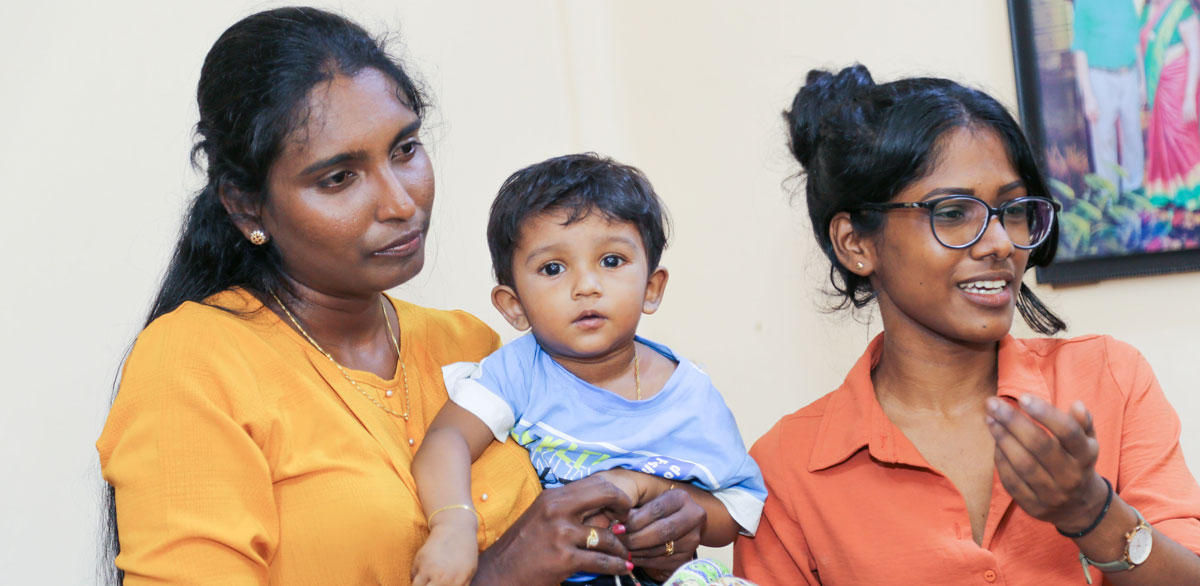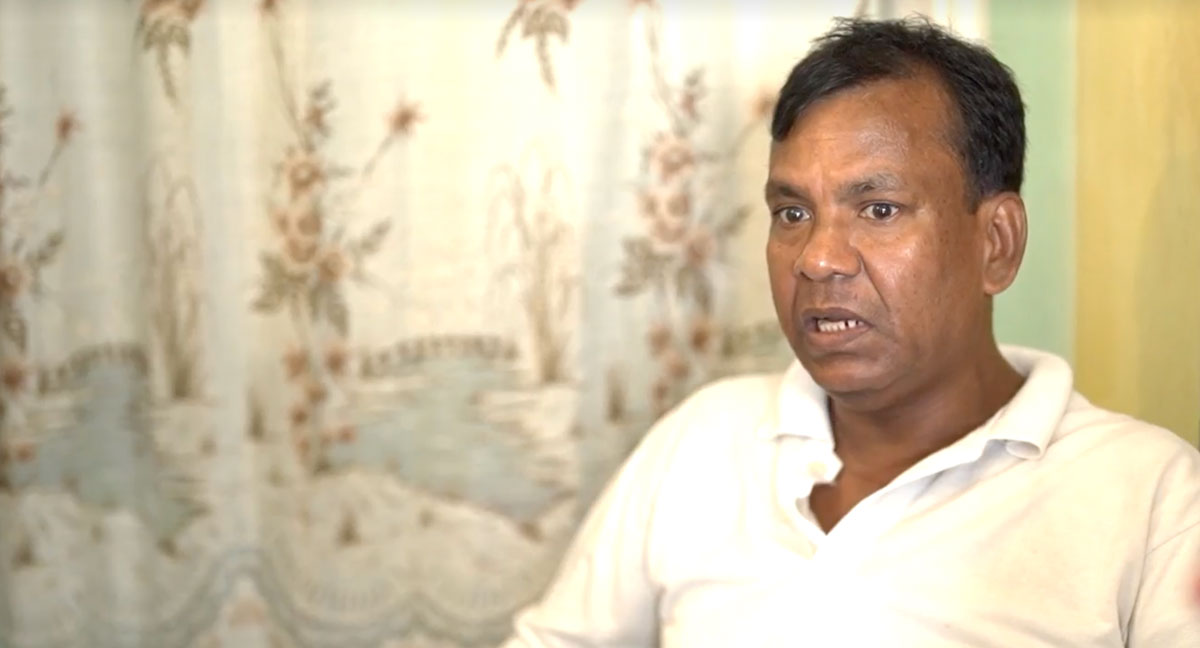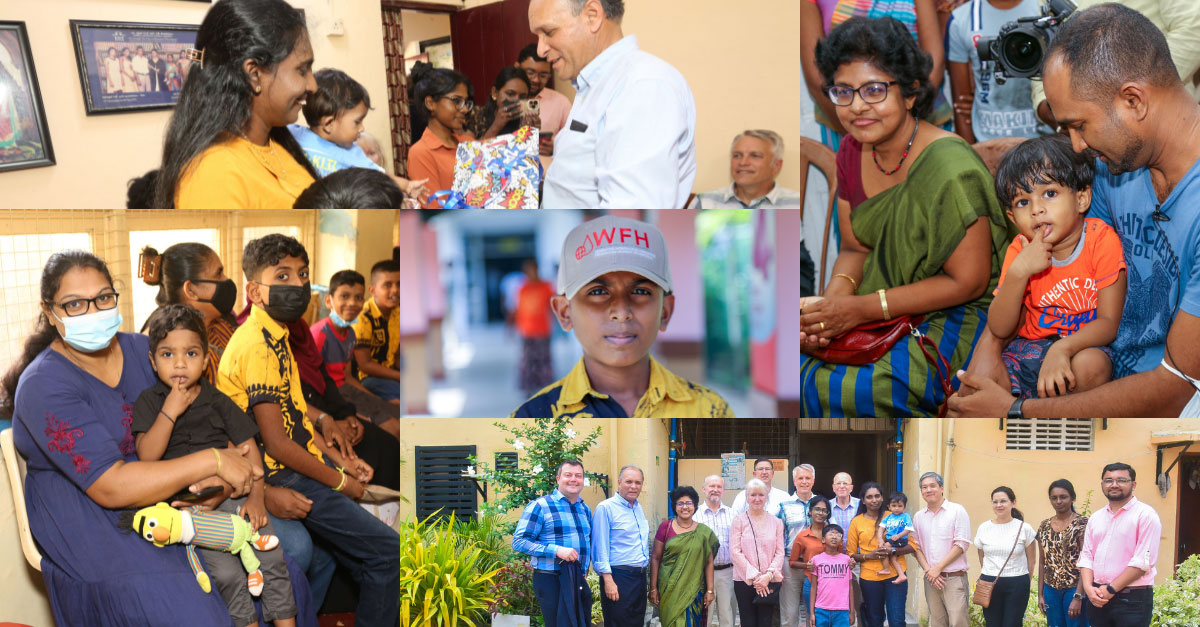In the eight years since the WFH Humanitarian Aid Program first began supporting the community in Sri Lanka, the level of care in the country has improved dramatically. Where once a bleeding disorder meant a difficult—and often all-too-short—life, now Sri Lankan PWBDs can live a more normal existence. Children can play with their peers and regularly attend school. Adults can get jobs and contribute to society.
During the visit to Sri Lanka, the Program team had the opportunity to have first-hand conversations with two people who have benefitted from Program donations. The first was a mother of an eight-year-old-boy and a one-year-old boy. In conversation with Cesar Garrido, President of the WFH, she recounted how different her experiences have been with both boys. The diagnosis of her firstborn was difficult because she knew nothing about hemophilia. It was also difficult, however, because the level of care at the time was very poor. Now, her youngest is faring much better thanks to product donations, and better-trained specialists—two things which have been provided by the WFH Humanitarian Aid Program. Conversely, her one-year-old son has had almost no bleeds and is living a more normal life. Now, life is easier, and happier, for her and her children.

Steve Pipe, MD, had the chance to talk to an adult PWBD who had lived through decades of little to non-existent care. The man recalled how he would have to go to the hospital twice a week because of bleeds. He also had trouble walking because of the impact of his condition on his knees. But once he started taking donated factor, everything changed. How he has no bleeds, and he can go anywhere without fear of being hospitalized. Describing his life now, he said simply that it’s “normal”.

While there’s still much work to be done in Sri Lanka before the country is truly self-sufficient in terms of care for PWBDs, the progress has been very encouraging. The hemophilia treatment centres (HTCs) in the country have also benefitted from WFH Humanitarian Aid Program support. To read another article—and watch a video—on how specialists are using data to increase the standard of care in Sri-Lanka, please click here.
The WFH Humanitarian Aid Program has donated nearly 64 million IUs of factor and over 490,000 mg of non-factor replacement therapy to Sri Lanka since 2015. Over 1.1 million IUs of factor, and nearly 72,000 mg of non-factor replacement therapy have already been donated so far this year. To find out more about the Program, please click here.
About the WFH Humanitarian Aid Program
The WFH Humanitarian Aid Program improves the lack of access to care and treatment by providing much-needed support for people with inherited bleeding disorders in developing countries. By providing patients with a more predictable and sustainable flow of humanitarian aid donations, the WFH Humanitarian Aid Program makes it possible for patients to receive consistent and reliable access to treatment and care. None of this would be possible without the generous support of Sanofi and Sobi, our Founding Visionary Contributors; Bayer, CSL Behring and Roche, our Visionary Contributors; Grifols, our Leadership Contributor; and Takeda and Japan Blood Products Organization, our Contributors. To learn more about the WFH Humanitarian Aid Program, visit www.treatmentforall.org.













